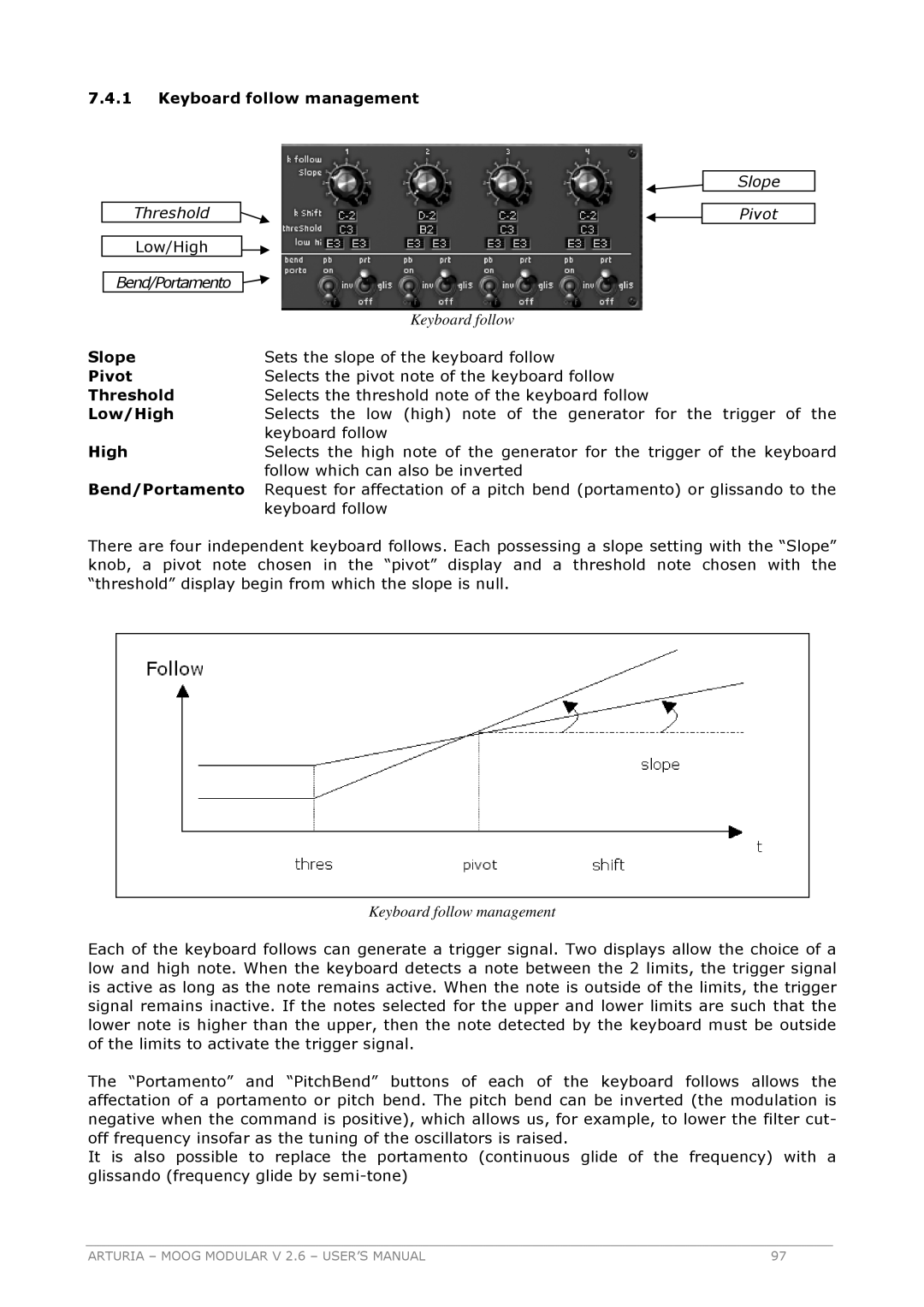
7.4.1Keyboard follow management
Threshold
Low/High ![]()
Bend/Portamento ![]()
Keyboard follow
Slope
Pivot
Slope | Sets the slope of the keyboard follow |
Pivot | Selects the pivot note of the keyboard follow |
Threshold | Selects the threshold note of the keyboard follow |
Low/High | Selects the low (high) note of the generator for the trigger of the |
| keyboard follow |
High | Selects the high note of the generator for the trigger of the keyboard |
| follow which can also be inverted |
Bend/Portamento | Request for affectation of a pitch bend (portamento) or glissando to the |
| keyboard follow |
There are four independent keyboard follows. Each possessing a slope setting with the “Slope” knob, a pivot note chosen in the “pivot” display and a threshold note chosen with the “threshold” display begin from which the slope is null.
Keyboard follow management
Each of the keyboard follows can generate a trigger signal. Two displays allow the choice of a low and high note. When the keyboard detects a note between the 2 limits, the trigger signal is active as long as the note remains active. When the note is outside of the limits, the trigger signal remains inactive. If the notes selected for the upper and lower limits are such that the lower note is higher than the upper, then the note detected by the keyboard must be outside of the limits to activate the trigger signal.
The “Portamento” and “PitchBend” buttons of each of the keyboard follows allows the affectation of a portamento or pitch bend. The pitch bend can be inverted (the modulation is negative when the command is positive), which allows us, for example, to lower the filter cut- off frequency insofar as the tuning of the oscillators is raised.
It is also possible to replace the portamento (continuous glide of the frequency) with a glissando (frequency glide by
ARTURIA – MOOG MODULAR V 2.6 – USER’S MANUAL | 97 |
